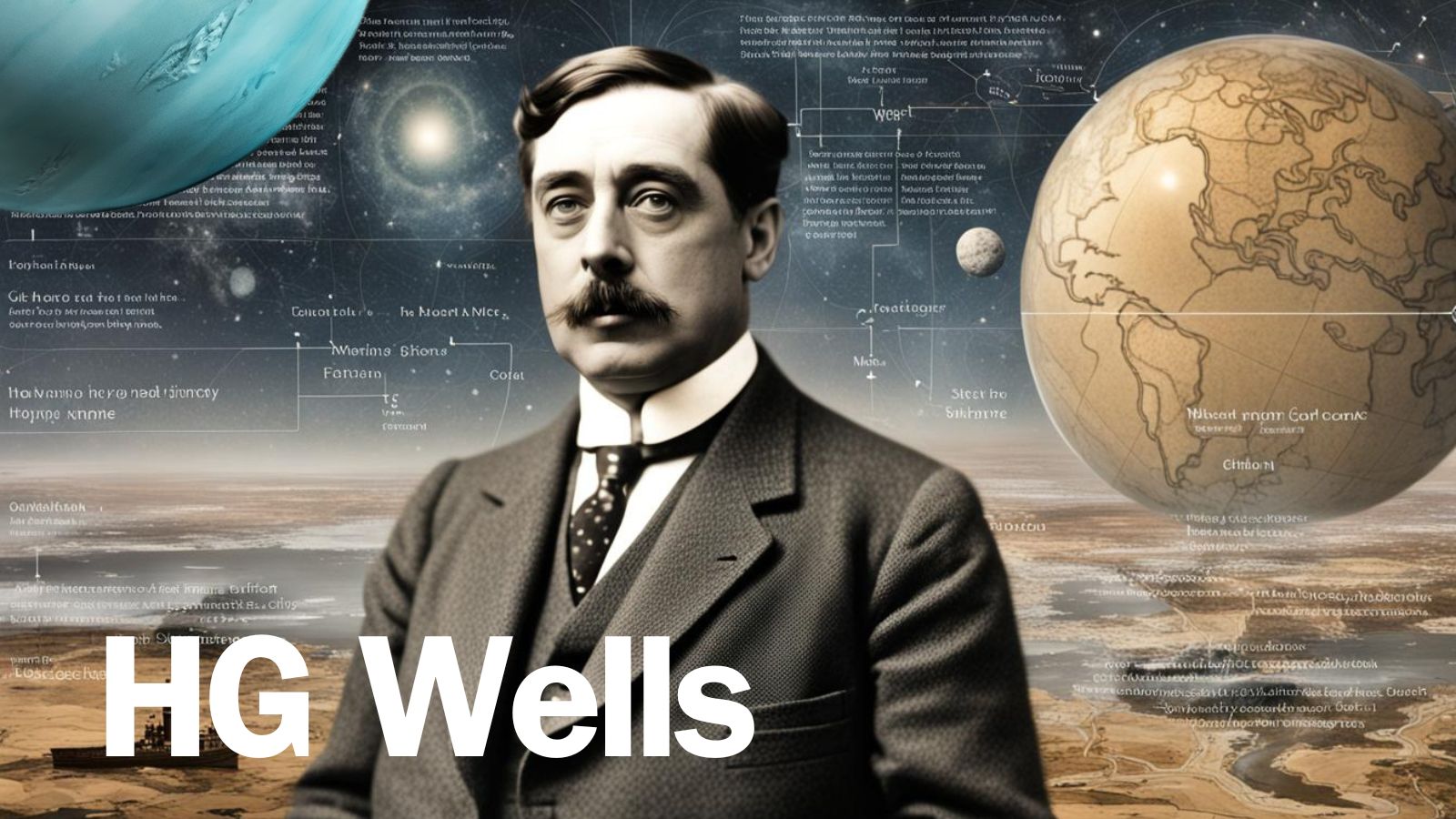THE RED ROOM by H. G. Wells “I can assure you,” said I, “that it will take a very tangible ghost to frighten me.” And I stood up before the fire with my glass in my hand. “It is your own choosing,” said the man with the withered arm, and glanced at me askance. “Eight-and-twenty […]
H. G. Wells

Herbert George Wells was born on September 21, 1866 in Bromley, England. His family was of modest means, with his father working as a professional cricketer and shopkeeper and his mother working as a housekeeper and employer. Wells received an apprenticeship in pharmacology but hated the field. Instead, he won a scholarship to the Normal School of Science in London.
There Wells studied under famous biologist Thomas H. Huxley, whose views on agnosticism would come to influence him. After completing his studies, Wells briefly worked as a teacher before turning to writing full time. He married his cousin Isabel in 1891 but cheated on her repeatedly later in life.
As an author, Wells was a pioneer of science fiction. Some of his most well-known works speculated on the implications of contemporary scientific understandings. “The Time Machine” (1895) imagines time travel, while “The Invisible Man” (1897) explores optics to make a man invisible. One of his most popular works, “The War of the Worlds” (1898) speculated about intelligent extraterrestrial life invading England.
Wells was also an early voice in discussing globalization and the establishment of a world state. Sociologically-oriented novels like “Anticipations” (1901) and “A Modern Utopia” (1905) spoke directly to these concerns. A committed socialist, Wells actively promoted these political views and edited publications dedicated to them as well. During the Great War, he published “Mr. Britling Sees It Through” (1916), viewing the war through an average Englishman’s eyes.
Later literary works included two more utopian novels, autobiographical experimentations, discussions of biology, and even works on wargaming as a basis for understanding international politics. Wells was nominated for the Nobel Prize for Literature four times but never won. His works remained popular throughout his lifetime, however, and he is remembered as a giant influence on the development and popularity of science fiction today. He died on August 13, 1946 at the age of 79 from liver failure.
- A Dream of Armageddon by H.G. Wells
- A Moonlight Fable by H. G. Wells
- The Country of the Blind by H. B. Wells
- The Diamond Maker by H. G. Wells
- The Moth by H. G. Wells
- The Moth by H. G. Wells
- THE RED ROOM by H. G. Wells
- The Sea Raiders by H. G. Wells
- The Star by H. G. wells
- The Treasure in the Forest by W. G. Wells
- The Valley of Spiders by H.G. Wells
